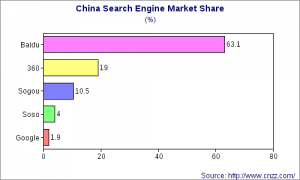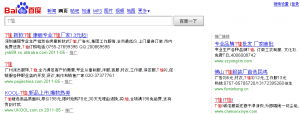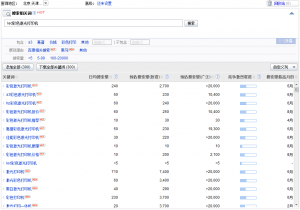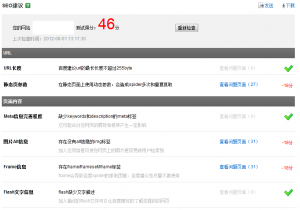| Reference | ||
| Population | 1,440,735,126 | WORLDOMETER |
| Internet population | 854,500,000 | WE ARE SOCIAL |
| Internet use | 59% | WE ARE SOCIAL |
| Scale of online advertising market | 52.51 billion USD | WE ARE SOCIAL |
- 72.4% of Chinese Internet users’ monthly income is under 5,000 RMB (790 USD) (CNNIC).
- 58% of Internet users access the Internet via PC, while 95% prefer mobile (We Are Social).
- Approximately 1.136 billion Chinese will be a part of the online community by 2025 (Statista).
- In China, approximately 25,000,000 million people become part of the online community annually (We Are Social).
- 71.8% of Internet users in China live in metropolitan areas (CNNIC).
- 1.6% of Internet users in China access it at Internet cafes (CNNIC).
- Chinese Internet users spend an average of 5.50 hours online per day (We Are Social).
- 837,410,000 Chinese (98% of the Internet community) chat online (We Are Social).
- 850,440,000 Chinese (94% of the Internet community) watch videos online (Statista).
- 59% of Internet users play online games (Statista).
- Chinese aged 20-29 make up the largest group of Internet users. They spend an average of 5 hours online daily ( We Are Social).
- In China, approximately 195 million searches are performed on search engine Baidu daily (We Are Social) and 750 million Chinese users use search engines (Statista.
- The search engine marketing industry grew 25 billion USD from 2019 to 2020 (China Internet Watch).
- 81% of online shoppers ask for recommendations from friends or family before they make a purchase.
- In 2019, the value of the Chinese e-commerce market was 1.94 trillion USD (Tenba Group).
- The results of a survey of the most trustworthy sites in China were (1st) Amazon.cn, (2nd) 360 buy, and (3rd) Tmall (DCCI).
- 319,000,000 Chinese (59% of Internet users) have their own blog (CNNIC).
- Sina Weibo, the largest Chinese social networking service (SNS,) has 550,000,000 users, and 100,000,000 articles are posted online each day (Statista).
- Due to Chinese government regulations, Facebook, Twitter, and YouTube are inaccessible in China.
At the end of 2019, the number of Chinese Internet users passed the 840,000,000 mark. However, the percentage of the Chinese population that is on the Internet is still only 58.3%.
There is clearly still much room to grow. And, as the Chinese market grows in the future, it will be the largest online market in the world.
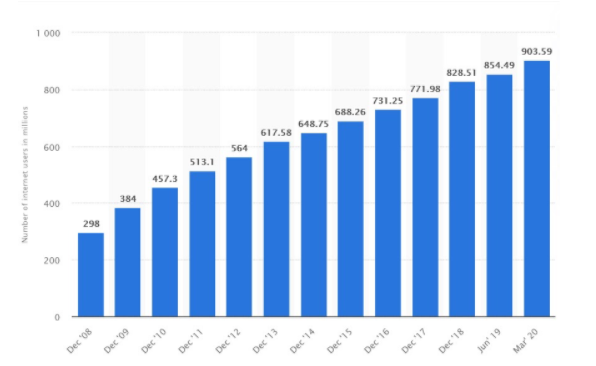
Fig 4.1: The Number of Internet users and percentage of Internet use in China
Source: Statista
While the number of Asian Internet users is significantly above the number of other regions, this high figure is predominantly attributed to China, which makes up more than half of the total Internet users in Asia.
Fig 4.2: Overall search engine shares in China
Currently, more than 90% of Chinese search engine users (approx. 700,000,000 people) turn to Baidu to perform their searches.
In China, while word of mouth and promotions via SNS are popular forms of marketing, paid search is just as important.
The amount of Chinese searching on Baidu is high, so marketing your business online in China on Baidu is the quickest and most effective way to reach new customers.
PPC Advertising in China
Baidu’s PPC ads are generally displayed in three different ways.
The display order of PPC ads is decided automatically on Baidu.
The system measures the relevancy of the searched keyword to an advertiser’s registered keyword, the bid price, and the quality score (i.e., ad to landing page relevancy).
PPC ads normally appear on the right side. If an ad is more relevant to a user’s search than average, it can appear at either the top or bottom.
If an ad is deemed to be especially relevant to a search, it can appear in the middle of the SERP.
It’s important to check how your ads will appear for the keywords you select.
1. The Difference Between Baidu PPC Google Ads
The algorithms of Baidu and Google are different but there are similarities when it comes to relevant parameters. The ads on both Google and Baidu search engines have relevant content, mobile optimization, quality links, and a logical website structure.
Meanwhile aspects such as the crawl frequency, social links, meta keyword tags, and the support of JavaScript are what makes them both different.
Much like Google, the backend for Baidu PPC ads is also well developed, secure, and has click-fraud protection. Baidu also updates its algorithms.
2. Opening a Baidu PPC Account
Opening a Baidu PPC Account is more complicated than opening a Google Ads Account, as it is in Chinese.
The first step is to create a Chinese website for your brand. While Baidu indexes English websites and accepts ads for them, the bounce rate will be too high.
Second step is to contact your local Baidu division. For this step, Baidu will appoint a marketing agency, if you have yet to set up your business in China. This agency will help you open a Baidu PPC account and Tenba Group will assist you throughout the process.
After, you will need to provide your company’s name, industry, and website to the local division of Baidu. It’s important to be mindful of China’s online regulation, so advertising for gambling, violent, or pornographic content should never be considered.
Aside from these, ads from financial sectors, pharmaceutical industries, and health products are also discouraged..
After the first verification step, you will have to provide documents such as a business registration certificate from the country of origin, a simplified Chinese translation of this registration, and screenshots of your website. Baidu may require you to adjust your website’s content for compliance reasons.
It typically takes 2-4 weeks for a Baidu PPC account to be approved. It is best to keep contact with your assigned Baidu representative to keep track of the progress.
3. Keyword Research
Focus on long tail keywords and buyer intent keywords. It is also advised to factor voice search. So, identify keywords that resemble spoken language rather than written search queries.
Finally, take a look at the CPC (cost-per-click) price to make sure you stay within your budget and have a chance of appearing with your ads. To research specific keywords you can use free tools like Baidu Keyword Planner, 5118, Chinaz, and Aizhan. Likewise, Google Ads Keyword Tool and SEMrush are also suitable for the Chinese market.
4. Baidu Ads Manager
Set up and manage your Baidu pay-per-click ads by using Baidu Tuiguang. It’s Baidu’s version of Google Ads.
5. Baidu Display Ad Network
There is also the option of using Baidu’s content network. There are over 600,000 websites that have partnered with Baidu to display banner ads.
6. Baidu Brand Zone
Brand Zone is exclusive to Baidu. It provides an average CTR of 50%. Brand Zone provides your brand logo, company introduction, and tailored content. But it is much more expensive.
7. Baidu Analytics
Once the ads are up, monitor their performance. You can adjust the ads and optimize the bids. A/B testing would also improve your CTR rate. The CTR on Baidu has an average of 1% compared to 0.2% on Google.
For this, use Baidu Tongji. You can create reports and statistics on your website traffic, get information about conversion rates, and more.
8. Landing Page
Landing pages are an integral part of the campaign. After clicking a Baidu ad, users are directed to your website or social media channel.
You have two options: First is to create the landing page yourself. Second, which is the more convenient option, is to use Jimuyu – a Baidu Ads account app.
Just make sure that all the links are connected to accessible sites within the country and no recaptcha for forms. And be mindful to tailor your content for the Chinese demographic.
Keyword Match Types
Baidu features four different keyword match types:
Exact Match – Ads appear for this type when searched keywords exactly match registered keywords and there are no extra words in the query.
Example: When the registered entry is “Japan vacation,” ads will appear for: “Japan vacation,” but not for “fun Japan vacation,” “Japan vacation hotels,” “Japan cheap vacation,” “vacation Japan,” “American vacation,” etc.
Phrase Match – Ads appear for this type when at least part of the searched query matches the registered entries or a synonym of the words.
Example: When the registered entry is “Japan vacation,” ads will appear for: “Japan vacation,” “affordable Japan vacation,” “vacation Japan,” etc., but not for “Japan travel” or “vacation Tokyo.”
Broad Match – Keywords with this match type will bring up ads in the same fashion as Exact and Phrase Match varieties, but also for other related user queries. “Broad Match” means exactly what its name suggests: a broad interpretation of the registered keyword. This entails synonyms and grammatical variations of the keyword.
Example: When the registered keyword entry is “Japan vacation,” ads will appear for: “Japan tour,” “vacation Tokyo,” “Japan hotel,” “Japan trip,” etc.
Wide Match – Baidu also offers a wider match type for paid search advertisers to take advantage of. It’s called “wide match” and it will help advertisers to show ads for keywords with an even more distant relation to their registered entries. Depending on your budget, wide match might not be the best for you though as it can lead to higher advertising costs. Please use it carefully.
Example: When the registered keyword entry is “Japan vacation,” ads will appear for: “Tokyo food,” “Kyoto souvenirs,” etc.
The above four match types should be used accordingly so that your ads will appear or not appear as desired.
Intelligent Match + Core Term – For intelligent match + core term, advertisers can tell Baidu a core bidding term. Baidu will intelligently find the search terms associated, which will include the selected core term along with more related terms.
Intelligent Match – For intelligent match, Baidu will find search terms according to the user’s search intent. Your traffic quality increases because true search intent is captured to trigger an ad. It is a balanced solution for traffic growth.
Ad Copies
The higher Baidu quality score an ad has, the longer title and description lines it can display.
The general format of a text PPC ad on Baidu is a title of up to 14 characters and a description of up to 40 characters.
The following image is one of these ads:
Fig 4.4: Baidu PPC ad with a short description
Ads with high quality scores, on the other hand, can display titles with up to 25 characters and a description with up to 80 characters.
The image below is an extended text ad:
Fig 4.5: Baidu PPC ad with a long description
This aspect of quality and how it affects ad copy must not be forgotten.
It is important that you create a lengthier ad copy for the possibility of their appearing in better positions.
Characteristics of Chinese Keywords
One prominent characteristic of Chinese language search queries is that they do not include spaces between words.
This is a very important element, and it is recommended that you keep this in mind when creating your keyword list. Consider the following example:
When investigating the monthly search volume for “English language study,” (which can be written with or without spaces in Chinese, as many as 5,300 searches were recorded for“英语学习” (no space), but only 50 for “英语 学习” (space present).
In English, it is natural to enter spaces between words in a query, but that is not the case for Chinese.
Characteristics of Chinese Ad Copy
Baidu also allows telephone and QQ numbers (QQ is a popular Chinese chat system) to be inserted into PPC ads.
Chat is widely used in China for e-commerce customer support, so having a QQ code in your PPC ads is beneficial, because it signals to searchers that you will provide support during the purchase process.
Fig 4.6: It is normal to see phone numbers or QQ codes in Chinese paid search ads.
Baidu Bidding System
Baidu has a bidding system similar to Google AdWords:
- CRI = bidding price X quality score.
Baidu’s bidding system is based on an index called the Comprehensive Rank Index (CRI).
With a high CRI, you can still reach top level display spots even with a bid price lower than competitors.
In order to achieve a higher CRI, you must increase your CTR, which can be done by raising the level of your ads’ relevancy to users’ search queries.
In other words, having well written ad copy that creatively integrates keywords being searched will attract more clicks and, thus, increase your CTR.
So, even if an advertiser’s bid were 2 USD (a price higher than all his competitors), he wouldn’t beat out a competitor with a higher CRI and a bid of only 1.80 USD.
Fig 4.7: The makeup of how a PPC ad gets its ranking on Baidu.
For Baidu, it is important to remember that a quality score is just as important as bid price. Quality score is measured mainly by the following criteria:
- Keyword compatibility
- Quality of ad copy
- Ad relevance to landing page and keyword
- Having an ICP license
- Load time of the landing page
- Condition of your host server
Regional Settings are Important, Too
For Chinese SEM, it’s really important to consider where you want to market within the country before you go about starting your campaigns.
China is often thought of as a nation with one people and one language, but in reality, it is much more complex.
For example, there are significant differences between the coastal and inland regions in terms of spoken languages, culture, and lifestyle.
Not carefully setting the target regions for your campaigns can lead to wasted time and wasted money.
The Baidu Keyword Tool
Baidu has a keyword tool that will provide you with keyword search volume, competition levels for keywords, and peak search periods (i.e., which month a keyword is searched most).
This tool can be accessed via the following link:
- http://u.baidu.com/?module=default&controller=Reg&action=regUser&appid=3 (registration required)
Fig 4.8: Baidu’s keyword tool
In order to use the Baidu Keyword Tool, you’ll need to first create a paid search account with them.
Only then can you access all the valuable data that will assist you in planning for your Chinese SEM.
Baidu Trends
Baidu has a tool that is very similar to Google Trends.
Unlike Google’s version, however, which provides numerical data gathered from user searches all over the world, Baidu only provides information related to China (as you would expect).
One other major difference between the two, though, is that explicit figures are not shown on Baidu’s version; rather, data collected by Baidu is used to show which keywords are trending at specific periods of time.
By using Baidu’s tool to organize your SEM, you can estimate when more traffic will come to your site.
Furthermore, this tool provides other useful information such as alternative keywords with a high level of relevancy to yours, search data associated with users’ gender, data regarding users’ educational background, and even regional statistics.
- Baidu Trends: http://index.baidu.com/
Chinese SEO
Until 2009, most of Baidu’s first SERP was filled with paid search ads, so even if you were to attempt SEO, reaching the first page was more dream than reality.
Since 2009, however, Baidu has shifted its engine to operating on the Phoenix Nest Platform, which essentially gave its SERPs more of a Google-like feel (i.e., balance between paid and organic results).
The Title Tag is Key
Title tags are very important on Baidu. It is crucial that target keywords are present and integrated into the title tag.
Also, for Baidu it seems that keywords inserted closer to the beginning of the tag are more influential.
You do not want to insert more than two keywords, though. The length of a Baidu title tag should ideally be 30 characters or fewer.
Overall, since title tags take center stage in the SERPs, it is important that you create them with the purpose of attracting clicks.
This can be done by inserting the keywords that users are looking for into the title tag.
- Example of a Chinese title tag:
<title>让日本的旅游成为您最好的回忆!日本旅游请到ABC旅行社</title>
- English translation:
<title>A trip to Japan you’ll remember! For Japanese vacations, see ABC Travel.<title>
Copywriting for Meta Tags is Effective
Currently, Google does not consider metadata that important for its ranking of search results; Baidu, on the other hand, does.
Since your site’s meta descriptions will be shown in search results, it is highly recommended you write them accurately and persuasively, in addition to including target keywords.
This should lead to more clicks. The length of the meta description should ideally be 75 to 150 characters.
- Chinese meta tag examples:
<meta name=”keywords” content=”日本,旅游,观光情报,旅游团,自由行,旅游,ABC旅行社”/>
<meta name=”description” content=”日本旅游的观光情报和购物情报的综合旅游网页,为了让您的日本旅游成为您最好的回忆,我们向顾客提供各种旅游团和自由行的情报,日本旅游请到ABC旅行社。”/>
- English translations:
<meta name=”keywords” content=” Japan, travel, tourism information, tours, vacation, travel, ABC Travel “/>
<meta name=”description” content=”Our site contains various information on traveling and shopping in Japan. ABC Travel provides tours and individual travel plans that have been developed to meet the needs and wants of our customers. For your trip to Japan, contact ABC Travel.”/>
Save the Best for the Top
For your website’s SEO, putting more important text at the top of each target page is important, because it has been found that Baidu values this area more in its algorithms.
Make sure to exercise caution with your content, though, as Baidu does penalize for keyword stuffing.
Baidu Favors Websites with Volume
It has been found that Baidu ranks sites with a higher volume of textual content better than their lower volume counterparts. This content cannot be just any content, though. It must be rich content, not just filler. Always create content that keeps the website viewers’ interests in mind.
Backlinks are Important to Baidu
Baidu, like Google, places a significant amount of value on the number of quality backlinks a site has.
The backlinks for your site need to be from sites that are related to your own, so a large amount of links from just any site will not do.
Recklessly building a link portfolio from irrelevant, low quality sites will lead to a decrease in your site’s ranking, and, if the situation becomes too spammy, you could be removed from Baidu SERPs.
Link building on Baidu is not as risky as it is on Google, though, so if you do plan on buying some, just make sure they are top-notch quality.
Hosting Issue
In order to perform SEO on Baidu, it is recommended you host your site in China. The Chinese government has established a conservative firewall, termed “The Great Firewall of China,” which can prevent overseas sites from being accessed domestically.
The mere existence of this system essentially slows down foreign sites’ load times, because they have to pass through it every time a Chinese user attempts to gain access.
If you are planning to perform SEO on your site and it is hosted outside of China, make sure to first check the load time; your SEO strategies could end up being futile if Baidu is unable to effectively crawl your site.
Even for paid search on Baidu, your site’s load time will be taken into consideration.
If you are planning to host your site in China, you will first need to obtain an Internet Content Provider (ICP) license.
This license is only available to companies founded in China or with subsidiaries based there.
If you don’t have this, though, hosting through a company in Hong Kong or Singapore can help with site speed issues that will arise.
Baidu Webmaster Tools
Google’s Webmaster Tools (http://www.google.com/webmasters/tools/) is a widely used program that can provide you various data on your website, but Baidu also has its own version: https://ziyuan.baidu.com/dashboard. You can find out how to use the Baidu tool on this page:
Although the page is in Chinese, it can be translated into a language of your liking if you use a browser that has a translation function, such as Google Chrome.
Through Baidu’s Webmaster Tools, you will be able to register your website’s site map. By registering your site map beforehand, you can avoid Baidu crawling errors and know which pages in your site aren’t being indexed properly. Registering your site map will not, however, guarantee your ranking will increase in the SERPs.
Registering URLs
The following link is to Baidu’s indexation application page:
While applying for your site’s indexation does not guarantee it will be indexed, there is the possibility that you can increase the speed of the whole process, so it is highly recommended.
Baidu Traffic Analysis Tool
Baidu provides a free tool called Baidu Analytics, which provides traffic data for your website:
- http://tongji.baidu.com/web/welcome/login
What is nice about this tool is that it not only provides website traffic data, it also has data that can be used for your SEO.
The features of Baidu Analytics that can be used for your site’s SEO analysis:
Item |
Description |
| SEO Analysis | The maximum score for the SEO analysis is 100 points. High scores signify proper SEO, and low scores, a need for improvement. Receiving a 100 point score does not ensure a high ranking on Baidu, but the analysis data is generally a good reference. |
| Ranking Inquiry | Up to ten keywords’ ranking data can be taken. |
| Indexation Inquiry
|
This tool shows you how many of your pages are actually indexed on Baidu. If the number of pages in your website is below the number of pages shown in the inquiry, there was a problem that occurred during the crawling of your site. |
| Load Time Evaluation | This tool measures the load time of your site. If load times are significantly slow for your site, it is not only bad for your SEO, it’s not ideal for your site’s viewers either. Changing hosts or fixing your pages to speed up the times is highly recommended. |
| Link Analysis | The Link Analysis tool allows you to see what sites are linking to yours. By knowing what types of sites are linked to yours, you will know what is needed to increase your site’s ranking. Generally speaking, you want to have a large number of trustworthy sites as your backlinks. |
Fig 4.9: A screenshot of Baidu’s SEO analytics tool, wherein you can find out a website’s SEO score.
After inserting Baidu Analytics’ traffic access tags into your site’s source code and pushing the SEO scan button, Baidu will perform an SEO evaluation of your website.
This scan will point out the problematic areas of your site, such as any lengthy URLs, meta tag settings, and Frame or Flash use. Ultimately, it will provide you a comprehensive score.
Search Engine Directories in China
In China, there are a number of directories on which you can register your site for SEO purposes. When performing SEO in China, you should definitely consider registering your site on the following directories:
- http://www.2345.com/
Registration URL: http://bbs.2345.com/forumdisplay.php?fid=27&page=1&filter=type&typeid=9
- http://123.sogou.com/
Registration URL: http://123.sogou.com/about/shoulu.html
- http://hao.360.cn/
Registration URL: http://hao.360.cn/url.html
More Information about China
In China, there is a government operated firewall that blocks a significant amount of foreign sites, to the point that it has been given the name “The Great Firewall of China.”
If you are trying to promote your site in China and it isn’t passing through The Great Firewall, then Chinese internet users will be unable to access your site.
In order to check if your site is able to be accessed by Chinese internet users, please visit the following site:

Fig 4.10: https://www.comparitech.com/privacy-security-tools/blockedinchina/, a website that allows you to check if your site is able to be accessed by domestic Chinese internet users
It is very easy to use this site: All you have to do is enter your site’s URL and press “test.” The page that follows will inform you whether or not your site can be accessed in China.
When a site is accessible in China, the following screen with green “OKs” will appear.
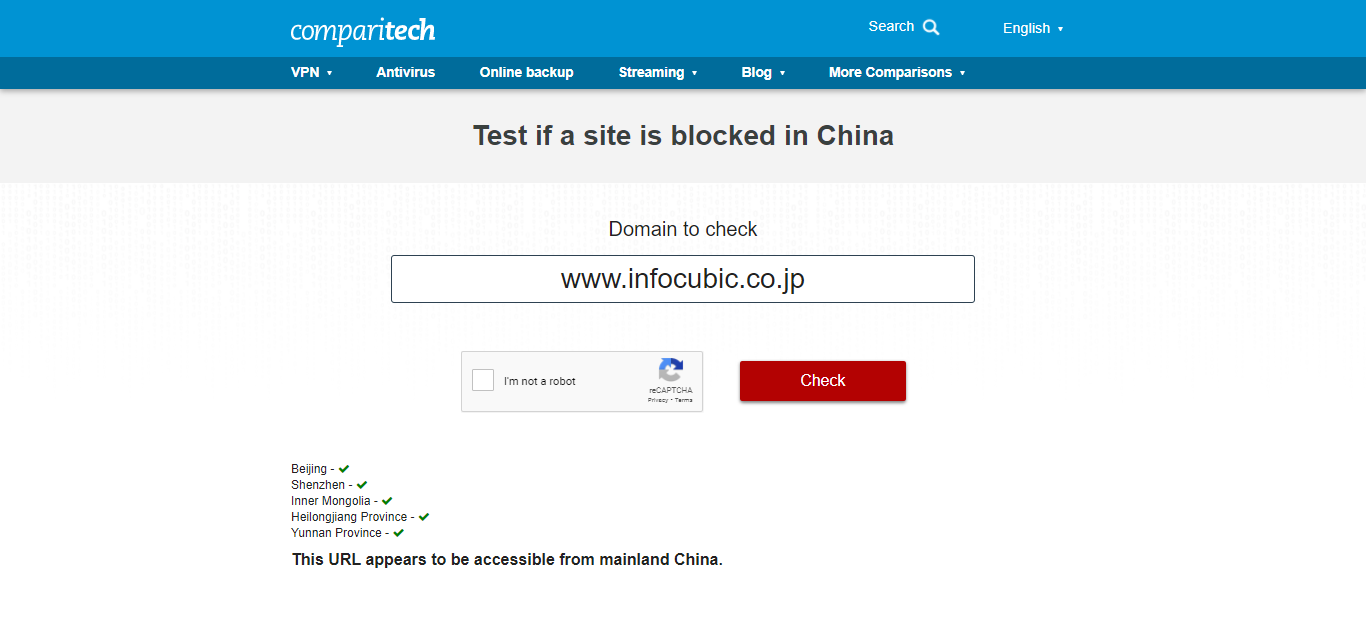
Fig 4.11: The green lights indicate that a site is viewable in China.
Some sites, such as www.youtube.com, are not accessible. This is designated by red “FAIL” symbols. The Facebook and Twitter site is also inaccessible.
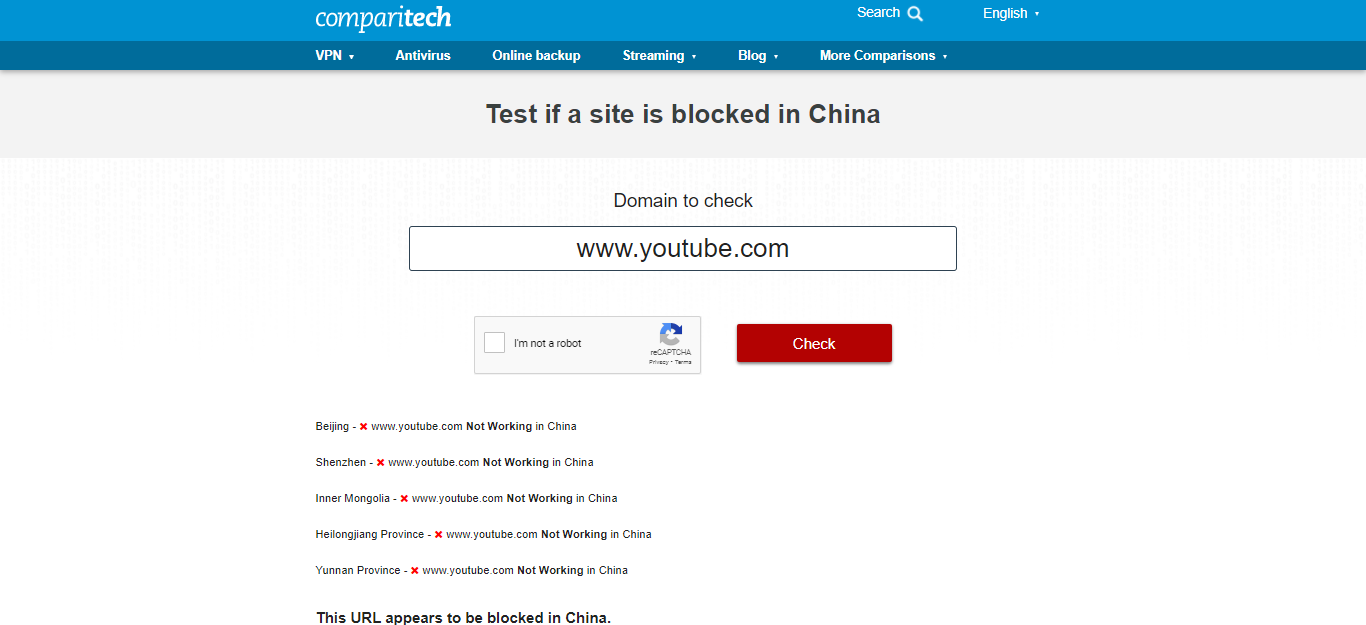
Fig 4.12: The red lights indicate that a site is not viewable in China.
If you enter your site’s URL and the red “FAIL” symbols appear, there is the chance that the content in your site breaches China’s Internet regulations. All that can be done to fix this problem is for you to change the content of your site.
Contact us at Info Cubic to get help with your digital marketing campaigns in China.
Featured Photo by Hanny Naibaho on Unsplash

